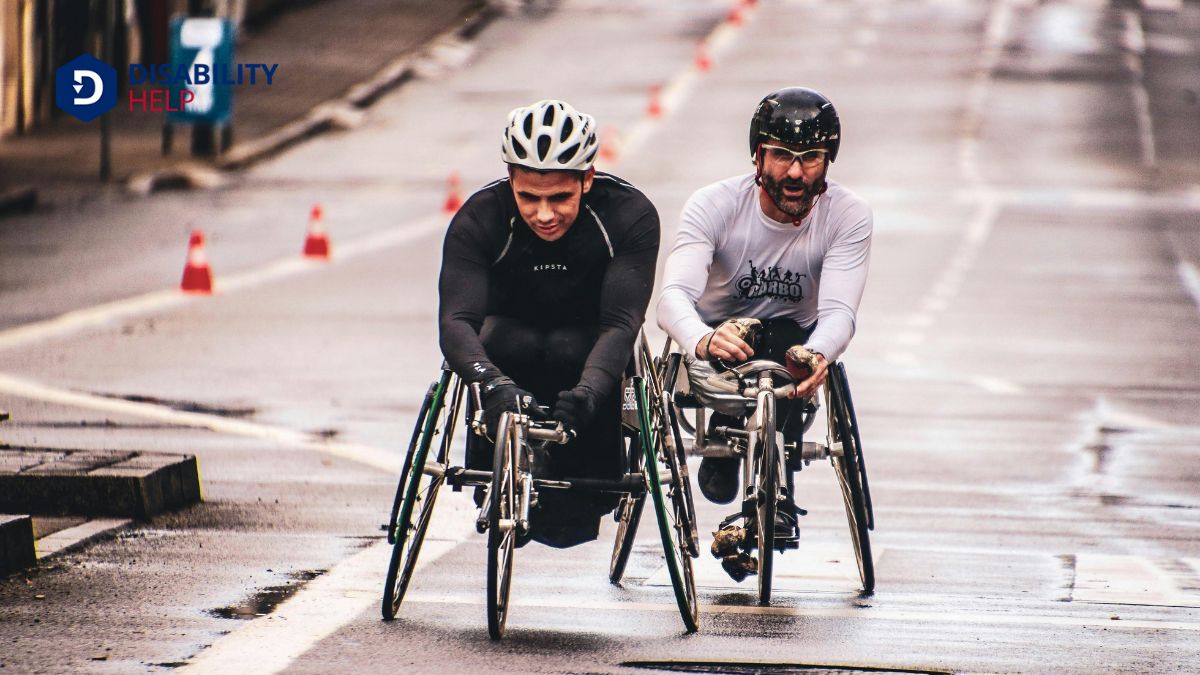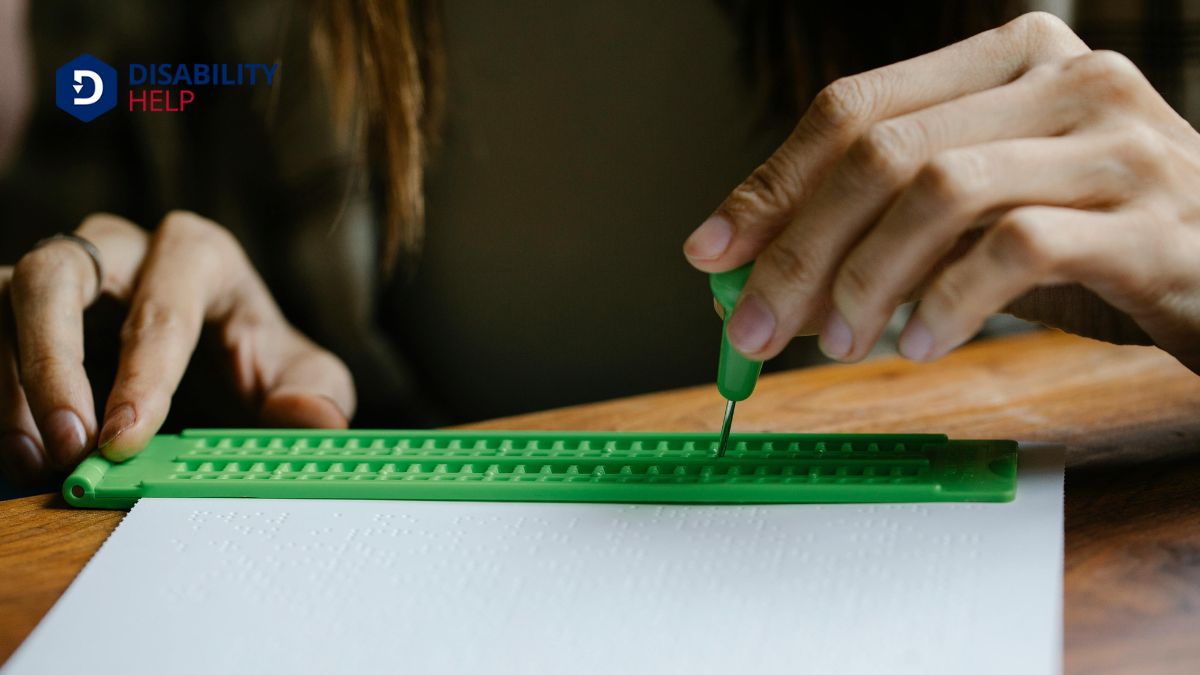Inclusive educationEducational practices that integrate students with disabilities into general education classrooms, s... benefits everyone by fostering mutual respect and understanding. We promote respect for diversityThe inclusion of individuals from a wide range of backgrounds, including people with disabilities., reduce bullying, and ensure students with disabilities feel a sense of belonging. Students develop vital life skills like patience, compromise, and effective collaboration. This approach nurtures empathyThe ability to understand and share the feelings of another, particularly important in understanding... and positive attitudes towards disabilities and breaks down misconceptions. It cultivates a safe and supportive environment where all students thrive while also teaching essential social and emotional skills. By embracing inclusive education, we build stronger, more cohesive communities. There's much more to uncover about how this environment can transform learning and growth for all.
Key Takeaways
- Inclusive education fosters a safe environment with reduced bullying incidents.
- Students develop essential life skills such as teamwork, communication, and compromise.
- InclusionThe practice of creating environments in which any individual or group can be and feel welcomed, res... promotes mutual respect, understanding, and positive attitudes towards disabilities.
- All students experience a sense of belonging and community, reducing feelings of isolation.
- Diverse perspectives in learning enhance critical thinking and empathy.
Socially Inclusive Schools
Creating socially inclusive schools isn't just a lofty ideal; it's a tangible reality that benefits everyone involved. When we cultivate an environment where every student feels respected and valued, we lay the groundwork for a culture of mutual respect and understanding. Socially inclusive schools foster this by promoting respect for diversity, ensuring that individual differences aren't only acknowledged but celebrated.
In these schools, students experience an enhanced appreciation for diversity, which leads to a more inclusive school culture. This culture encourages students to develop empathy and acceptance, essential skills for their future interactions both inside and outside the classroom. By creating an environment where all students feel included, we help reduce the exclusion of any student group.
Moreover, the ripple effect of these inclusive practices can't be overstated. With guidelines for promoting social inclusion readily available and over 7,600 schools participating in the Unified Champion Schools program, the movement towards inclusivity is gaining momentum.
Our commitment to socially inclusive schools not only benefits the students directly involved but also sets a precedent for future generations, establishing norms of tolerance and respect that will extend beyond school walls.
Reduction in Bullying

When we foster inclusive education, we see a significant decrease in bullying incidents, with Unified Champion Schools reporting a 58% reduction.
This improved school climate not only enhances student safety but also promotes respect and acceptance among all students.
Decreased Bullying Incidents
Inclusive education notably reduces bullying incidents, creating a safer environment for all students. When we embrace inclusive education, we see a marked decrease in the exclusion of any student group. Schools that foster inclusive environments often experience fewer teasing and bullying incidents.
For instance, Unified Champion Schools have reported a remarkable 58% reduction in bullying incidents. This statistic shows the powerful impact inclusive education can have on creating a more harmonious school setting.
We can't overlook the importance of promoting a safe and inclusive environment. When all students feel valued and included, the likelihood of bullying drops significantly. Inclusive education helps us break down barriers and encourages empathy and understanding among students.
By integrating students with diverse needs and backgrounds, we cultivate a community where everyone learns to appreciate differences rather than mock them.
The correlation between inclusive education and decreased bullying is clear. As educators and parents, it's our responsibility to support and advocate for inclusive practices in our schools. By doing so, we're not only reducing bullying incidents but also fostering a culture of respect and kindness that benefits every student.
Improved School Climate
Acknowledging the decrease in bullying incidents, we can see how inclusive education plays a vital role in improving the school environment. When schools adopt inclusive practices, they create environments where every student feels respected and valued. Unified Champion Schools, for example, report a 58% decrease in bullying, demonstrating the direct impact of inclusivity on nurturing a positive learning atmosphere.
By promoting diversity and tolerance, inclusive education helps reduce the exclusion of any student group. This inclusion leads to less teasing and bullying, enhancing social interactions and mutual respect among students. When children from diverse backgrounds learn together, they develop norms of acceptance, which markedly enhance the overall school climate.
Moreover, inclusive classrooms encourage students to embrace differences, leading to a more respectful and welcoming environment. Initiatives like Unified Champion Schools work diligently to ensure that all students feel included, further decreasing instances of bullying and exclusion.
In essence, a focus on inclusive education doesn't just benefit individual students; it transforms the entire school atmosphere into a space where positive learning thrives, and every student can feel safe and appreciated. This reduction in bullying underscores the power of inclusivity in education.
Enhanced Student Safety
Over time, we've seen how inclusive education greatly enhances student safety by reducing bullying. In Unified Champion Schools, there's a remarkable 58% reduction in bullying incidents. This isn't just a statistic; it's a reflection of the power of inclusive environments in fostering respect and understanding among students.
In inclusive classrooms, teasing and exclusion of any student group decrease significantly. A focus on promoting a safe and inclusive school climate leads to fewer bullying and teasing incidents overall. By integrating students of all abilities, we create a community where everyone feels valued and accepted.
Here's what we observe in inclusive environments:
- Reduced bullying incidents: A 58% decrease in schools practicing inclusive education.
- Decreased teasing and exclusion: Students are less likely to isolate peers.
- Improved social safety: Enhanced acceptance among students.
- Positive school climate: A focus on student safety and well-being.
- Community building: A sense of belonging for all students.
Inclusive education isn't just about academics; it's about creating a safe space where every student can thrive. By prioritizing student safety, we foster a positive environment that benefits everyone.
Inclusion of Students With Disabilities

Students with intellectual disabilities thrive when included in all activities within inclusive education settings. It's evident that when students with disabilities are part of inclusive classrooms, they gain a stronger sense of belonging. We all know that feeling accepted and valued is essential for anyone, and inclusive education guarantees that these students don't feel left out. They participate alongside their peers in every activity, experiencing the same social and academic opportunities.
In inclusive classrooms, genuine friendships form naturally. When students with and without disabilities learn and play together, they develop mutual respect and understanding. This environment fosters unity and inclusivity, breaking down barriers and misconceptions about disabilities. It's heartwarming to see students support each other, creating a more accepting school culture.
Moreover, inclusive education allows students with disabilities to feel part of the broader school community. They're not just on the sidelines; they're actively engaged in social opportunities and experiences that enrich their lives. By promoting inclusivity, we're teaching all students the significance of acceptance and empathy.
Inclusive education isn't just advantageous for students with disabilities; it transforms the entire school community into a more compassionate and understanding place.
Development of Life Skills
In inclusive education settings, we see students learning essential life skills through teamwork and cooperation. Unified sports and activities teach patience and compromise, fostering personal growth and understanding. By embracing diversity, we all benefit from an environment that promotes these vital skills.
Teamwork and Cooperation
Unified sports in inclusive education are an impactful way to cultivate patience, compromise, and teamwork among students. When we engage in these activities, we see firsthand how inclusive sports teach us to communicate and collaborate effectively. These experiences are more than just fun; they're essential life lessons.
By participating in inclusive classrooms and Unified Champion Schools, students develop essential life skills that prepare them for future challenges. They learn to work together, appreciate diverse perspectives, and understand the importance of each team member's role. As a result, their personal growth and social interactions are greatly enhanced.
Inclusive education fosters teamwork and cooperation through various engaging activities:
- Group projects where each student's contribution is crucial.
- Team-building exercises that require problem-solving and joint effort.
- Class discussions that encourage respectful listening and sharing.
- Sports teams that emphasize fair play and mutual support.
- Collaborative art projects that blend individual creativity into a unified piece.
These activities not only make learning more dynamic but also instill values that last a lifetime. By promoting teamwork and cooperation, inclusive education equips students with the skills they need to succeed in diverse environments.
Patience and Compromise
Our journey through inclusive education highlights the undeniable importance of patience and compromise in developing life skills. In inclusive classrooms, students frequently engage in activities that demand collaboration and mutual respect. Unified sports, for example, provide an excellent platform for students to practice patience and compromise. When different abilities come together on the same team, everyone must learn to wait their turn, understand varying skill levels, and adjust their strategies accordingly.
Inclusive education fosters an environment where teamwork and cooperation aren't just encouraged but essential. This setting helps students understand that effective collaboration often requires compromise. Whether it's deciding how to tackle a group project or resolving a conflict, students learn that their individual desires sometimes need to be balanced against the group's needs. This lesson is invaluable and extends beyond the classroom into everyday life.
Personal Growth Benefits
Patience and compromise lay the foundation for a deeper exploration into the personal growth benefits of inclusive education. When students engage in unified sports and inclusive classrooms, they're not just learning academic content; they're developing vital life skills that will serve them throughout their lives.
In inclusive settings, students learn to:
- Work effectively in a team, promoting cooperation and teamwork.
- Exercise patience and compromise, which are crucial for resolving conflicts.
- Show empathy, fostering a deeper understanding of others' perspectives.
- AdaptA grassroots disability rights organization in the U.S. that focuses on promoting community-based se... to different learning styles through small group instruction.
- Collaborate effectively, enhancing both social and emotional skills.
These experiences contribute significantly to personal growth. When students engage in inclusive education, they gain a rich tapestry of social and emotional skills that help them navigate various life situations. Differentiated teaching methods ensure that all students, irrespective of their abilities, can develop these skills at their own pace. This personalized approach not only benefits their academic performance but also equips them with the tools needed for personal success.
The long-term benefits of developing life skills in inclusive education can't be understated. By fostering an environment of empathy and understanding, we're preparing students to become compassionate, well-rounded individuals ready to thrive in diverse communities.
Positive Attitudes Towards Disabilities

Empathy flourishes in inclusive classrooms, where students interact and learn side by side with peers who've disabilities. This environment nurtures empathy and compassion, helping us develop positive attitudes towards disabilities. When students with and without disabilities share the same space, they gain a deeper understanding of each other's experiences and challenges. This shared experience fosters an inclusive mindset, where differences aren't just accepted but celebrated.
We've seen how inclusive education promotes strong relationships. These connections encourage support and acceptance, creating a community where everyone feels valued. By understanding and appreciating the unique contributions of individuals with disabilities, we build a culture of empathy and understanding. This culture extends beyond the classroom and into the broader society, influencing how future generations perceive and interact with people with disabilities.
Moreover, inclusive education benefits all students by promoting a sense of belonging. It helps break down stereotypes and misconceptions, leading to more positive attitudes towards disabilities.
When we actively participate in such an environment, we become advocates for inclusivity, carrying forward the values of empathy and compassion in all areas of our lives. This, in turn, enriches our collective human experience.
Principles of Inclusive Education
In inclusive education, we promote equality and diversity by guaranteeing all learners have access to the same educational opportunities. This approach respects the rights of students with and without disabilities and focuses on meeting the needs of every individual. Let's explore the core principles guiding this educational model.
First, we emphasize cooperation. Everyone, from educators to parents and students, works together to create a supportive learning environment.
Second, empowermentThe process of gaining control, authority, and power over one’s life, often used in the context of... and independence are vital. We encourage all students to take charge of their learning journey, fostering a sense of self-reliance.
Third, maintaining esteem and honor for all learners is non-negotiable. Every student deserves to feel valued and understood, regardless of their abilities.
Fourth, we focus on recognizing and overcoming barriers to inclusion. This involves acknowledging challenges and actively finding solutions to guarantee no one is left behind.
Lastly, adjusting the curriculum is indispensable. Modifying teaching methods and materials to meet the diverse needs of students ensures that everyone can participate fully and benefit equally from educational experiences.
- Cooperation among all stakeholders
- Empowerment and independence for students
- Esteem and honor are fundamental values
- Recognizing and overcoming barriers
- Curriculum adjustment for diverse needs
Effective Inclusive Practices
When we discuss effective inclusive practices, acknowledging that collaboration and differentiation are at the core of successful inclusive classrooms is essential. We can't overstate the importance of teamwork between general education and special educationCustomized educational programs designed to meet the needs of students with disabilities. teachers. Their partnership guarantees that support and services are seamlessly integrated into daily lessons, benefiting all students.
Differentiated instruction is another key element. By tailoring our teaching methods to address individual learning styles, we can meet the diverse needs of our students. This approach, combined with individualized education plans (IEPs), allows us to set high expectations and develop standards-based goals for every student, making sure no one is left behind.
Moreover, inclusive classrooms often include related services like speech therapy. These services are provided within the classroom environment, which not only supports the student receiving therapy but also enriches everyone's learning experience. It promotes a deeper understanding and acceptance of diverse abilities and learning needs.
Benefits for All Students
Inclusive education isn't just beneficial for students with disabilities; it's a win-win for all. When we embrace inclusive education, we create an environment where diversity, equityFairness and justice in the way people are treated, especially in the allocation of resources and op..., and social justiceThe concept of fair and just relations between individuals and society, including the equitable dist... thrive. This approach recognizes the unique learning needs of every student and fosters a sense of community and belonging that leads to better academic and social outcomes.
In inclusive classrooms, students benefit from:
- Diverse perspectives: Exposure to different viewpoints enriches learning and promotes critical thinking.
- Equity in education: All students get the support they need to succeed, leveling the playing field.
- Social cohesion: A sense of belonging and community develops, reducing feelings of isolation.
- Collaborative skills: Working together on projects fosters teamwork and communication skills.
- Inclusive values: Students learn the importance of inclusivity and responsiveness, shaping them into compassionate individuals.
Frequently Asked Questions
What Are the Benefits of Inclusion Education?
We see the benefits of inclusive education in better academic and social outcomes. It promotes diversity and equity, fosters empathy and teamwork, and creates positive learning environments. Inclusive classrooms also offer tailored support, enhancing everyone's learning experience.
What are the benefits of special education for students?
We see the benefits of special education in how it tailors learning plans to each student, providing essential support and accommodationsModifications or adjustments in healthcare settings to support patients with disabilities.. This approach empowers students with disabilities, enhances their academic skills, and fosters social and emotional development.
Why Is Inclusion Important?
We value inclusion because it promotes diversity, equity, and social justice in education. By addressing each student's unique needs, we build a supportive community where everyone belongs, leading to better academic and social outcomes for all.
What Are the Primary Benefits of an Inclusive Classroom Compared to a Segregated Classroom?
We see higher academic achievement and improved social skills in inclusive classrooms. Students feel a sense of community and belonging, fostering acceptance and understanding of diversity. Long-term outcomes like employment and independent living also improve.
Conclusion
To sum up, we all benefit from inclusive education. It creates socially inclusive schools, reduces bullying, and guarantees students with disabilities feel valued. We develop essential life skills and foster positive attitudes towards disabilities. By embracing the principles and effective practices of inclusive education, we build a better learning environment for everyone. Let's commit to these values and make our schools places where every student can thrive. Together, we can make a difference.






